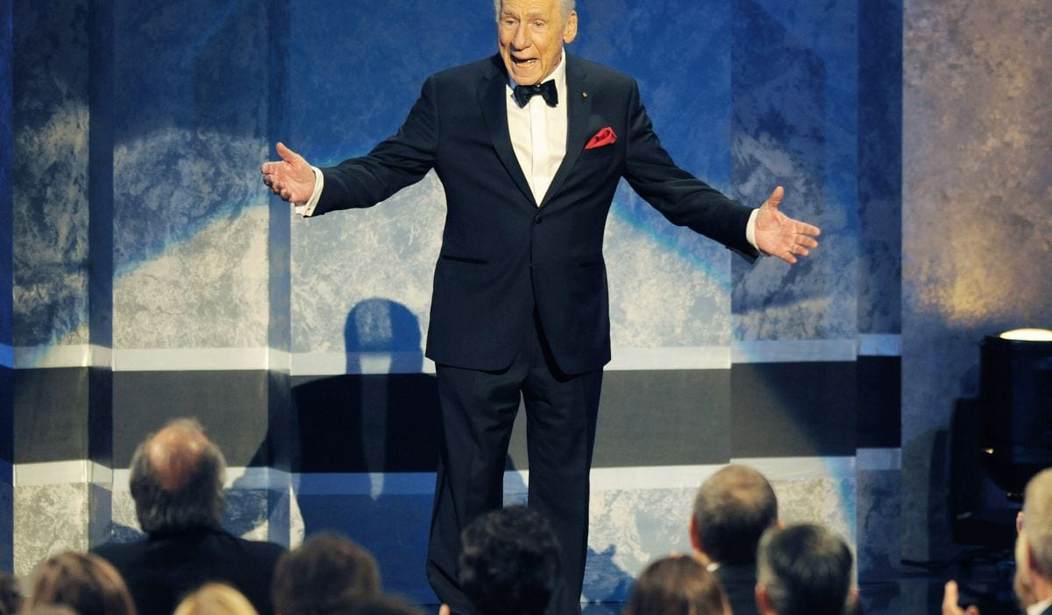Forty-five years ago, Mel Brooks made what many critics agree is the single, funniest film in Hollywood history. Blazing Saddles is not only an iconic comedy, but its social message about racism is also among the finest examples of using satire to make a serious point that you could find.
Now, four decades after it was released, the film has come under fire by social justice warriors because of its portrayal of white racism as comedy. Indeed, it’s hysterically funny.
This film concerns a black man (Cleavon Little as Sheriff Bart) who overcomes the severe, nearly fatal racial bigotry of a rustic town full of white people, mainly named Johnson.
The only way to present the adversity over which he triumphs is to present the adversity over which he triumphs. This involves the citizens of Rock Ridge very liberally hurling the N-bomb and other ethnic slurs.
“Good morning, Ma’am,” Sheriff Bart says to a sweet-looking, bonnet-wearing elderly woman (Jessamine Milner). “And isn’t it a lovely morning?”
“Up yours, n—-r!” she replies.
The sheriff’s pain is palpable. And the audience feels it, right in their guts.
There is dialogue like this sprinkled throughout the film, including one drop-dead funny scene where a railroad foreman tries to motivate his black workers.
The liberal use of the N-word and the racist cultural references were meant to be instructive and make the audience think — as was the film’s frequent satirical take on Nazis.
But “think” is not a word in the vocabulary of most social justice warriors. This was self-evident when feminist Cathy Areu weighed in on the film:
Displaying the stunning ignorance that propels so many of the politically correct, the shockingly far-left Areu complained that “auf wiedersehen” is “a Nazi joke.” She added, “Nothing is funny about the Nazis.” (Brooks’ musical “The Producers” — the Tony-winningest Broadway show of all time — blitzkriegs that claim.)
Indeed, does musical theater get any better than this?
As Buddy Bizarre (Dom DeLuise) shouts into a megaphone late in “Blazing Saddles:”
“WRONG!”
“Auf wiedersehen” is German for “goodbye.” It’s as Nazi as the words tag (day), wasser (water), or straße (street). Amid his myriad atrocities, Adolf Hitler surely uttered tag, Wasser, und Straße. Would Areu now make those words verboten?
Sara Lee writing at RedState:
The point of satire is to force people to face things often too uncomfortable to discuss in polite society — like racism — so the fear of its existence can be overcome and the thing itself can be put in a box marked “silly”. That’s not to suggest racism shouldn’t be taken seriously or that there haven’t been very serious repercussions because of the hate it’s inspired. But satire is one tool in the battle, one that defangs to defeat. Much like the kids in the Harry Potter world did when facing the “boggart,” for any millennials who might be reading.
The works of Mark Twain have undergone similar assaults over the years. Huckleberry Finn is banned in most school libraries and there has been a continuing controversy over Twain’s views of Native Americans. And, of course, there is a running debate about Civil War monuments.
The upshot is the slow erasure of the American past, replacing the real and genuine accomplishments of historical figures, forcing the public to see them through contemporary eyes — unforgiving of any imperfection that may have been “acceptable” in their day but now violates the norms of civil society.
This is stupid and wrong. And fighting for America’s past that’s under such idiotic assault should be everyone’s job.










Join the conversation as a VIP Member